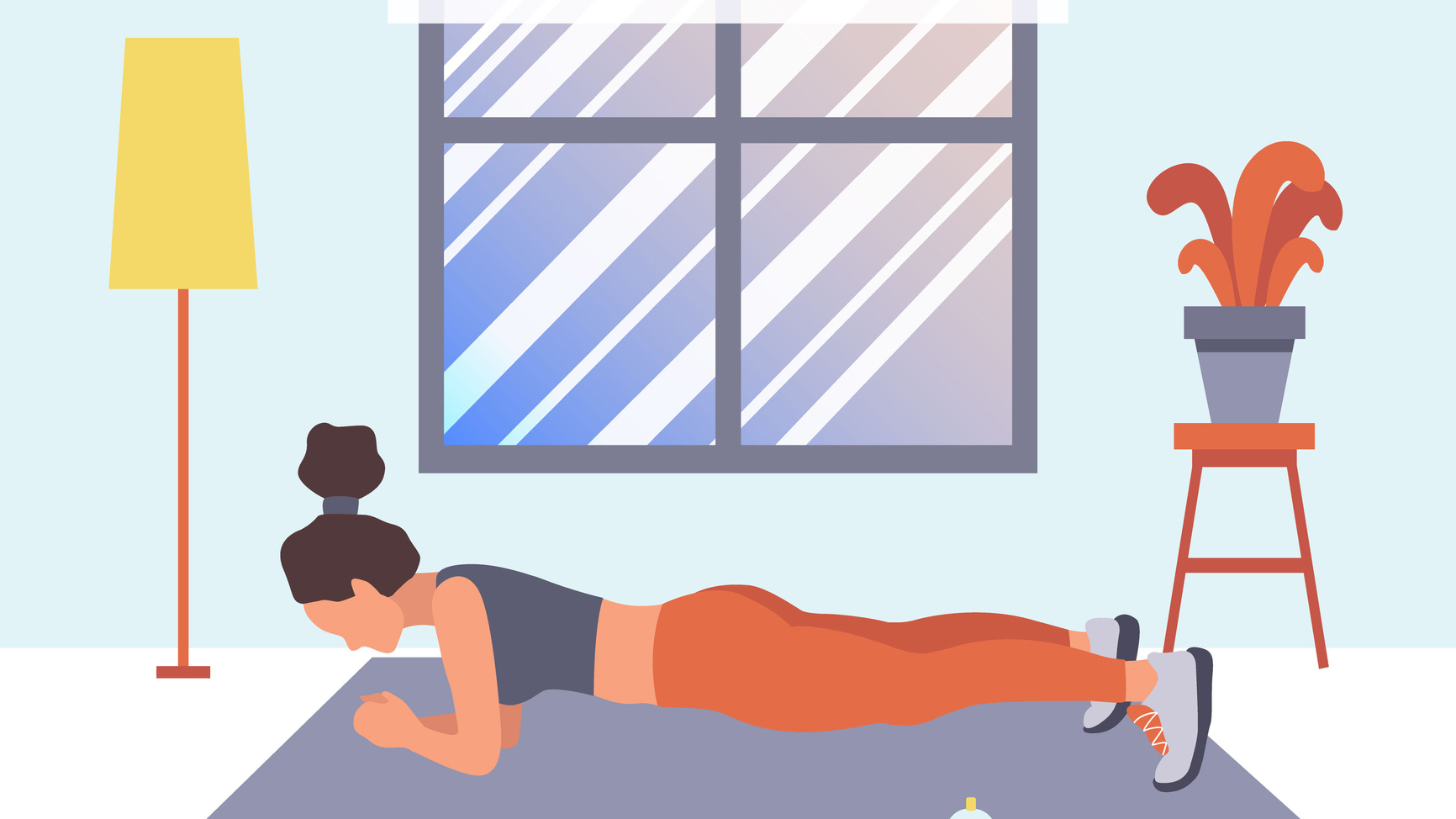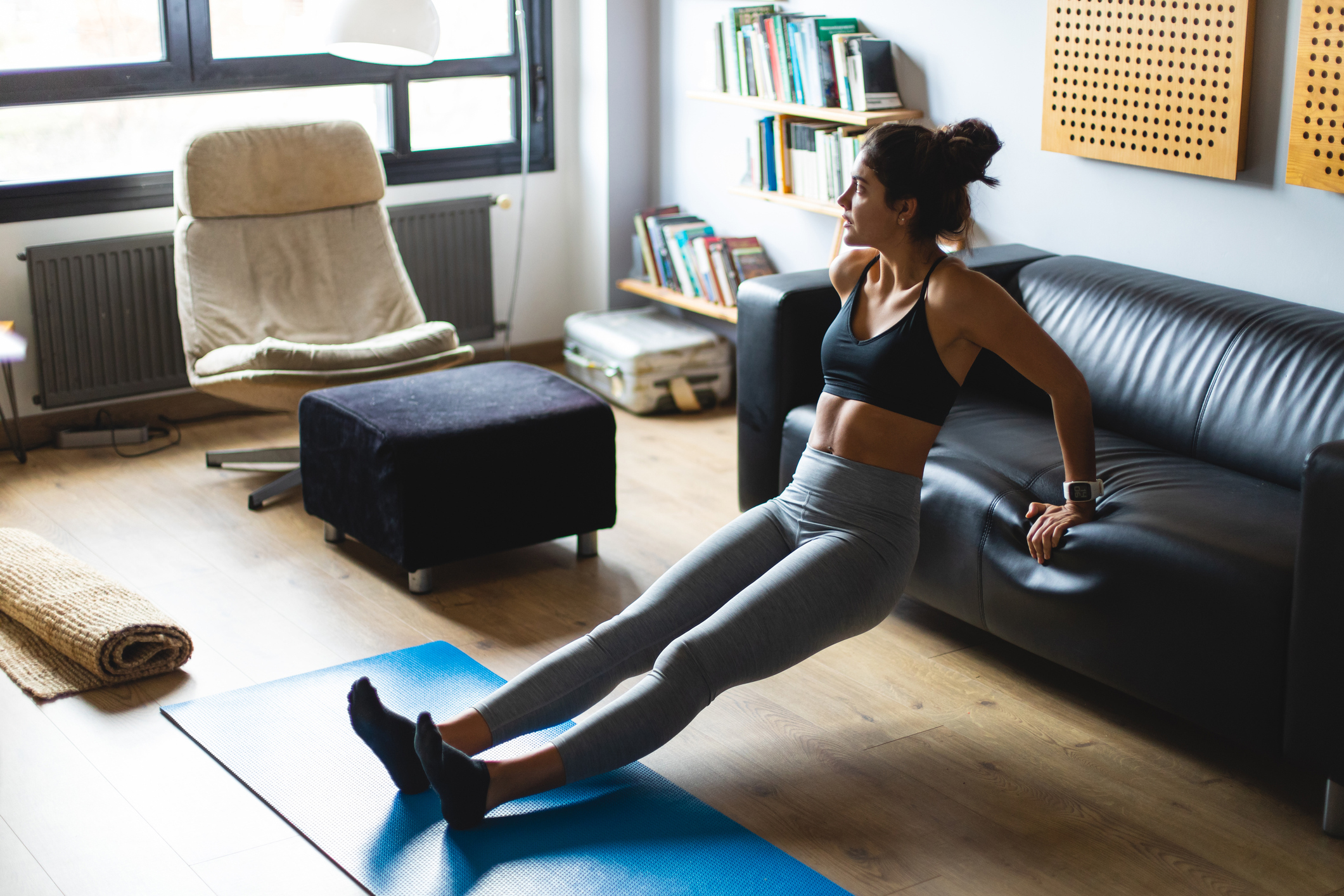Home workout tips: the workout mistakes you’re making at home and how to avoid them
Working out at home more? These are the best home workout tips so you avoid painful mistakes...


Staying active during this year has been no easy feat, but knowing some handy home workout tips will definitely help.
For many, working out as gyms closed has meant rearranging your living room, scrambling for fast-selling yoga mats online, and figuring out new running routes. And still, many have converted to home workouts even as the gyms have reopened. Yet, without the help of in-person training, there have been many crucial mistakes during these at-home sessions.
- Best yoga mats: the best yoga mats for your home workouts
Whether you’re an avid runner or have been smashing the weights, we can all keep an eye on our fitness routines to ensure we prevent injury and have an effective session. There’d be nothing worse than working out for hours on end and seeing zero progress. Regardless of your overall goals — be it weight loss, weight gain or mental health — we can adopt techniques or advice that help us ensure that we get there.
Here are the nine mistakes you’re making during home workouts that you should keep an eye on.
Home workout tips: the mistakes to avoid
Not taking any rest days
The best thing about home workouts is that there’s little room for excuses — you simply turn on the television (or open Instagram), whip out your mat and free weights and get moving. At the same time, eager fitness fans may become a little too enthusiastic.
With the ‘gym’ at home, the temptation to constantly workout is also a risk. It’s important to remember rest is just as important as a lengthy workout. PT and health editor Lucy Gornall is not a fan of rest days, but she knows how important they are. She says: “When you rest is the time when your muscles repair and become stronger ready for the next workout. I assure you, taking a day out or two or three or whatever, each week, will not wreck your progress if your workouts are structured and challenging. You will need the rest!”
Focusing only on cardio
Is it just us or did everyone become a runner during a lockdown? Even if you're a passionate cardio enthusiast, you still need to understand the need for strength. The lack of equipment at home means many solely focus on HIIT and cardio home workouts. Now, this is not necessarily a bad thing but depending on your goals, a lack of strength workouts means you could be hindering your overall progress. Incorporating some resistance and strength into your fitness regimes (with resistance bands or dumbbells) means not only are your muscles getting stronger your bones are too. Weight sessions can also improve your cardio training. As you build more muscle, you also help to cushion and protect the joints during impact activities like walking.
Not doing enough cardio
On the other side of the coin are those who don’t like cardio whatsoever. But getting your cardio in is essential. The benefits of cardiovascular exercise — walking, HIIT training or sprinting like an Olympian — are plenty, from lowering blood pressure, regulating blood sugar, improving brain function and your mood. So lace up your trainers and get your heart rate up.
Not having a plan
The temptation to just roll out of bed and start working out right there and then is strong when working out at home. Yet, while you may not be going to the gym, it’s still helpful to organise your home workouts. For one, having a clear workout plan probably will help you complete them. And then, becoming more organised — Monday Leg Day, Tuesday run day etc — means you’ll likely see results. We’ve all heard of meal prep, yet exercise prep is just as important.
Lucy advises: “Failing to prepare means you're just preparing to fail. You need a plan before you start your workout to not only keep you motivated, but you'll also know when the end is near! You'll spend far too much time faffing around if you don't plan, plus, if you want to progress you need to be tracking and recording what you're doing.”
Not staying hydrated
Many struggle to stay hydrated at the best of times (hello, coffee lovers), and yet when you work out you’d assume you’d want to guzzle more liquids. According to BUPA, around 60% of your body is water, and you can lose “up to two litres an hour” just through sweating and breathing.
Before you get started on your home workout, be sure to drink enough water to power you through your session — especially if you exercise first thing in the morning. If you feel that you’ve been a little fatigued during your workouts of late considering your hydration levels (the pee test helps) and get some water down you.

Not pushing yourself
So you’ve committed to working out at home and you’ve clocked up a few sessions over the last few weeks. And yet, you’re not seeing any significant results (whatever they may be). Now, this may be controversial but have you considered pushing yourself harder? OK sure, you may be covered in sweat but have you truly pushed yourself to your personal limit. If you can hold a conversation, or find yourself not completing your reps, then you may have sourced the issue.
To help measure your intensity, try using a fitness tracker or heart rate monitor to measure your heart rate and adjust your workouts accordingly.
Not getting enough sleep
Even though we’re in closer proximity to our beds these days while working from home or simply because we’re not leaving the house as much, many of us still struggle to get an adequate amount of sleep. It may come as no surprise that a lack of sleep can affect your workouts. Lucy says: “Sleep is the glue that holds us together! No sleep means your body will be unrested, more prone to injury and also it absolutely will not be able to work as hard as you want it to. Get the good solid sleep nailed before you think about continually smashing those workouts. Without the sleep you'll soon start to feel very very rough!”
Seven hours of sleep is the recommended amount of sleep for adults. If you’ve had a bad sleep, maybe not launch yourself into a tough training sesh. Instead, do something gentle or low impact like yoga that can help you sleep later on.
Not cooling down and stretching
It’s easy to cheat when no one’s looking but there are plenty of reasons why skipping that 5-minute stretch or cool down is a bad idea. When you stretch after a workout, you ease your muscles into the recovery process and bring your heart rate down. At home, stretching also brings about needed moments of pause (especially in a chaotic household).
Sticking to the same routine
While it’s great to find an exercise routine you like and want to stick to, it’s worth shaking things up occasionally. Lucy advises: “You can't expect to progress if you're doing the same thing day in day out. Your body will become so accustomed to the routine that it will become second nature. Shock it a little - throw in new moves, new speeds, new reps. Challenge yourself and you will see improvements.”
The great thing about being at home is that you can try new things without fearing prying eyes. There are plenty of apps out there with hundreds of exercise routines to help you get out of a fitness rut. We really enjoy Aaptiv’s audio-based workouts as it feels like there’s an actual trainer at home with you.
L’Oréal Blackett is a journalist, presenter, and magazine editor specialising in women’s lifestyle (BBC Radio, Bustle UK, Body Confidential, Daily Mirror). She also hosts popular podcast The Edit. Fuelled on coffee and a hip hop soundtrack, you can find L’Oréal sprinting a daily 5K or trying the latest HIIT class. L’Oréal also credits interviewing fitness guru Shaun T in his underwear (long story). She's currently training for her first marathon.
